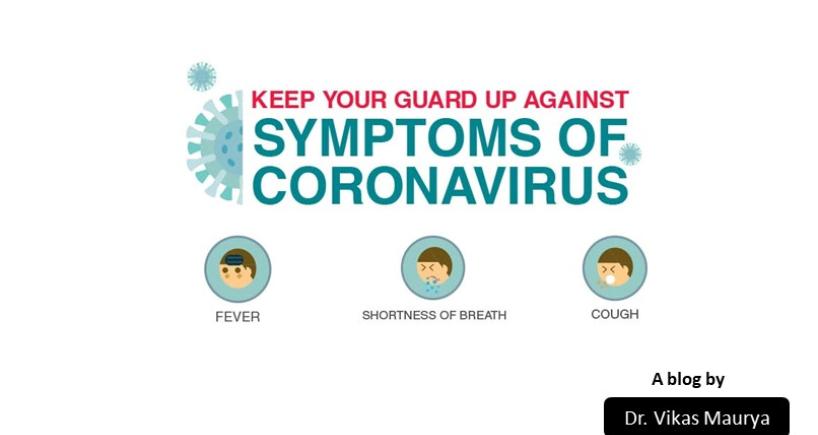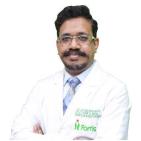
Pulmonology
Coronavirus
Dr. Vikas Maurya Feb 04, 2020

Introduction
Coronavirus is the most talked about and concerning topic in media and news these days. The coronavirus had also spread in 2003-2005 by the name of SARS (severe acute respiratory syndrome) and many people worldwide were affected by it. Coronavirus spreads like flu and has originated from Wuhan district, China. It is understood that the virus originated from a food market in China, however, it is not completely established. In the present scenario, the virus is spreading through Human-Human transmission and is new type of virus which can have serious consequences in around 20% of the infected patients. There are over 20,000 people affected by the virus and around 400 deaths have been reported in China from coronavirus till date. Some cases of the virus have also been diagnosed in other parts of the world like Asia-Pacific region, America, Europe, Australia and Japan.Etiology and Symptoms:
The research on Coronavirus is still ongoing as it is a new and deadly virus. This is a respiratory virus that affects birds, mammals, and in humans, this virus is believed to spread through snakes and seafood. The people who come in contact with or eat such affected species are prone to coronavirus.Coronavirus is a communicable virus that spreads from mammals & birds to humans and then from one human to the other. The severe effects of coronavirus can lead to the death of birds and mammals. In affected humans the symptoms of coronavirus are almost like any upper tract respiratory infection such as cold, fever, sore throat, breathing difficulty, cough, etc. Around 1 out of 5 patients may also suffer from its severe symptoms like respiratory distress, decreased oxygen levels, pneumonia, etc. If these symptoms are not controlled at an early stage, they can have serious effects and can lead a person to the hospital. If still, the symptoms are not under control, it can further lead to respiratory failure such as breathing difficulty, shortness of breath, extremely low oxygen levels in the blood, etc. The uncontrolled symptoms of this deadly disease can put a patient on a ventilator, which can further involve detrimental impact on multiple organs including kidney and ultimately may lead to death.
The other common reasons for the virus spread include low immunity specifically in the older age groups, children, heart patients, people already suffering from respiratory infections, immunocompromised patients and transplant patients, who are more prone to acquire coronavirus. Also, in such cases, the virus spread is rapid and hence these patients need to be much more careful.
According to the latest reports, coronavirus infection is also being reported from India, primarily from Kerela. Though no deaths has been reported from India, everyone should be aware of the risk factors and its ways of spreading. The common ways of coronavirus spread are through droplet infections through cough, sneeze and touch (handshake), similar to any other flu.
Preventive Measures:
W.H.O has declared coronavirus outbreak as ‘public health emergency of international concern’ and hence, it is very essential to take precautions and be watchful to protect yourself. The most important measure is to maintain hand hygiene. Some of the other precautions which are needed to be taken care of include:- Wash hands before going out and when entering back in the house and especially before eating food.
- In case of symptoms like cough, cold and fever, wear a mask to cover your mouth and also avoid going out until these symptoms disappear.
- In case of breathing difficulty and fever, contact the doctor
- Use a clean handkerchief to cover your mouth while coughing, and properly dispose of the infected items
- Wash hands with an alcohol based drug repeatedly.
- Avoid touching nose, eyes etc. with unwashed hands unnecessarily
- Frequently clean the gadgets, such as mobile phones, which are more often used
- Boil the milk properly before consuming
- Avoid eating seafood and processed food and consume only properly cooked meat.
The coronavirus can easily affect people if they are not cleaning their hands properly before touching their faces. It is important to get tested within 14 days, if someone has travelled to China or has come in contact with an infected person or has a persistent cold, dry cough or fever.
Treatment options:
There is no treatment available for coronavirus currently, and hence, it is very important to prevent yourself from the infection. The treatment which is being offered currently is only symptomatic, like if there is severe shortness of breath then the patient is admitted in ICU and is put on a ventilator but if the infection gets severe, then there are no treatment options available. The only cure possible is if the virus and its effects diminishes itself.The reports are that the coronavirus is very resistant, and hence is leading to multiple deaths occurring worldwide. Hence, everyone needs to be aware of coronavirus and we need to educate each other on how to prevent it from spreading.
Fortis Experts:
The Department of Pulmonology at Fortis hospital provides the utmost care and spreads awareness about coronavirus to all the people nationwide. The team is well lead by the expert Dr. Manoj Goel (Director of Pulmonology and Critical care, Fortis Memorial hospital, Gurgaon) and Dr. Vikas Maurya (Additional Director & Head, Pulmonology, Fortis Hospital, Shalimar Bagh).
To know more about the "Coronavirus", watch the below mentioned video by Dr. Vikas Maurya, Additional Director & Head, Pulmonology, Fortis Hospital, Shalimar Bagh. #Corononavirus
Categories
Clear allMeet the doctor

Dr. Vikas Maurya
SENIOR DIRECTOR & HOD - RESPIRATORY MEDICINE & RESPIRATORY CRITICAL CARE | Fortis Shalimar Bagh
- Pulmonology | Pulmonology | Sleep Medicine | Pulmonology and Critical care
-
20 Years
-
1400



















